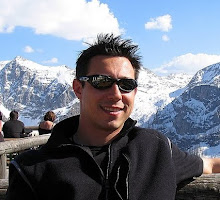We had 22 passionate and talented developers working in Java, C#, Ruby, Python and JavaScript. Some of them travelled two hours, waking up as early as 5am, to come to the code retreat and many others travelled at least one hour to be there.
We started at 8am, with breakfast and informal discussions. Then we had a quick introduction, where I explained the purpose of the day and used some of Corey Haines wise words. Here's a quick summary:
"In our day-to-day job, we need to get things done. We need to achieve something and deliver something. And we want and are committed to it. In order to do so, we end up cutting corners. So that's how we code. We sacrifice quality in order to deliver "faster".
But now imagine you have all the time in the world and all the knowledge in the world. Imagine what would be your idea of perfect code. Now compare it to what you do and how you code in your day-to-day job.
This gap is the measure of how much you suck. The bigger the gap is, the more you suck. The smaller the gap is, the less you suck. :)
But today, during the code retreat, is the day that we will practice perfect code. Today we don't need to deliver. Today we have no pressure, besides writing perfect code. That means the objective of a hands-on session like that, is not to finish the exercise, but to practice new approaches, expand our horizons and learn from others. Today we will reduce the gap from what we do in our day-to-day job and the perfect code, providing better value for our customers and being better professionals. "
It's not practice that leads to perfection, it's perfect practice that leads to it.
I also explained the four rules of simple design:
- All tests need to pass;
- No duplication;
- Reveals intention (good naming)
- Small
I have made this letter longer than usual, only because I have no time to make it shorter.
Blaise Pascal (sometimes also attributed to Mark Twain)
Format of the day
After a good breakfast, developers formed pairs and worked on the Conway's Game of Life. We had three sessions in the morning, then lunch and another three sessions in the afternoon. Each session lasted 45 minutes and had a retrospective afterwards where developers discussed their approaches and problems they faced. Then developers deleted the code from their machines. In each session new pairs were formed and worked on the same problem.
- First session: It was free. Basically the pairs worked with no constraints just to make themselves familiar with the problem.
- Second session: As a challenge, they were asked to use different data structure other than arrays and we introduced the concept of "primitive obsession".
- Third session: Developers were asked not to use flags and use polymorphism instead. This was to promote the exploration of abstractions.
- Lunch: We had nice sandwiches and deserts from a good delicatesse. We had 1.5 hours for lunch. During lunch time, some more senior developers said they haven't been challenged enough so I changed the strategy.
- Fourth session: In order to satisfy developers from different levels, I asked them to come up with a list of challenges and each pair would then decide which challenge they would take on, according to their level of expertise. The list they came up with was;
- Maximum 3 lines of code per method;
- Object-Oriented Programming to extreme.
- No getters / setters / properties
- Every line must start with "return" or "final" (Java/C# - functional style)
- Fifth session: TDD as if you meant it, that means, all code needs to be written inside the test method and then refactored out.
- Sixth session: Developers were free to do whatever they wanted again but many decided to use some of the challenges from sesson four.
- Pub
During the sessions, I also asked them to try different testing approaches: outside-in and inside-out. The reason was to compare how different the design would turn up. They were also encouraged to pair-program with developers from other languages, what is an amazing experience and broadens our mind.
The experiment with each pair choosing the challenge on session four had a mixed feedback. Some developers enjoyed it because they could push themselves. Others said that the retrospective was not so good since pairs were working with different challenges and could not relate to the problems and solutions exposed by other pairs. This is something I'll need to think about for future code retreats. How can I balance the challenges so everyone feels, well, challenged.
Overall, we all had a fantastic day. There were many very interesting discussions during the retrospectives and, according to the feedback, everyone learnt something. I definitely learnt a lot myself and facilitating my first code retreat was an amazing experience that I want to repeat.
I would like to thank Valtech for providing the venue and for the full sponsorship. They provided us everything we needed for this event and were key for its success.
For the full list of attendees, details about the event and more photos, please check http://www.meetup.com/london-software-craftsmanship/events/27600561/








